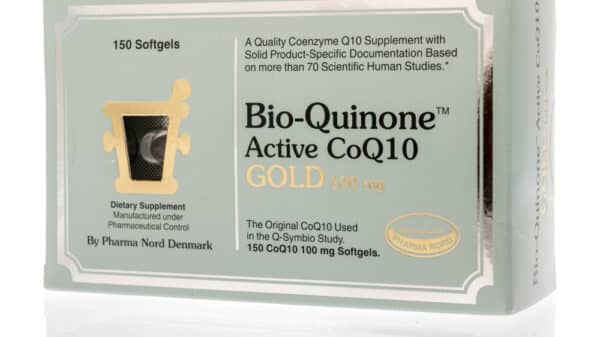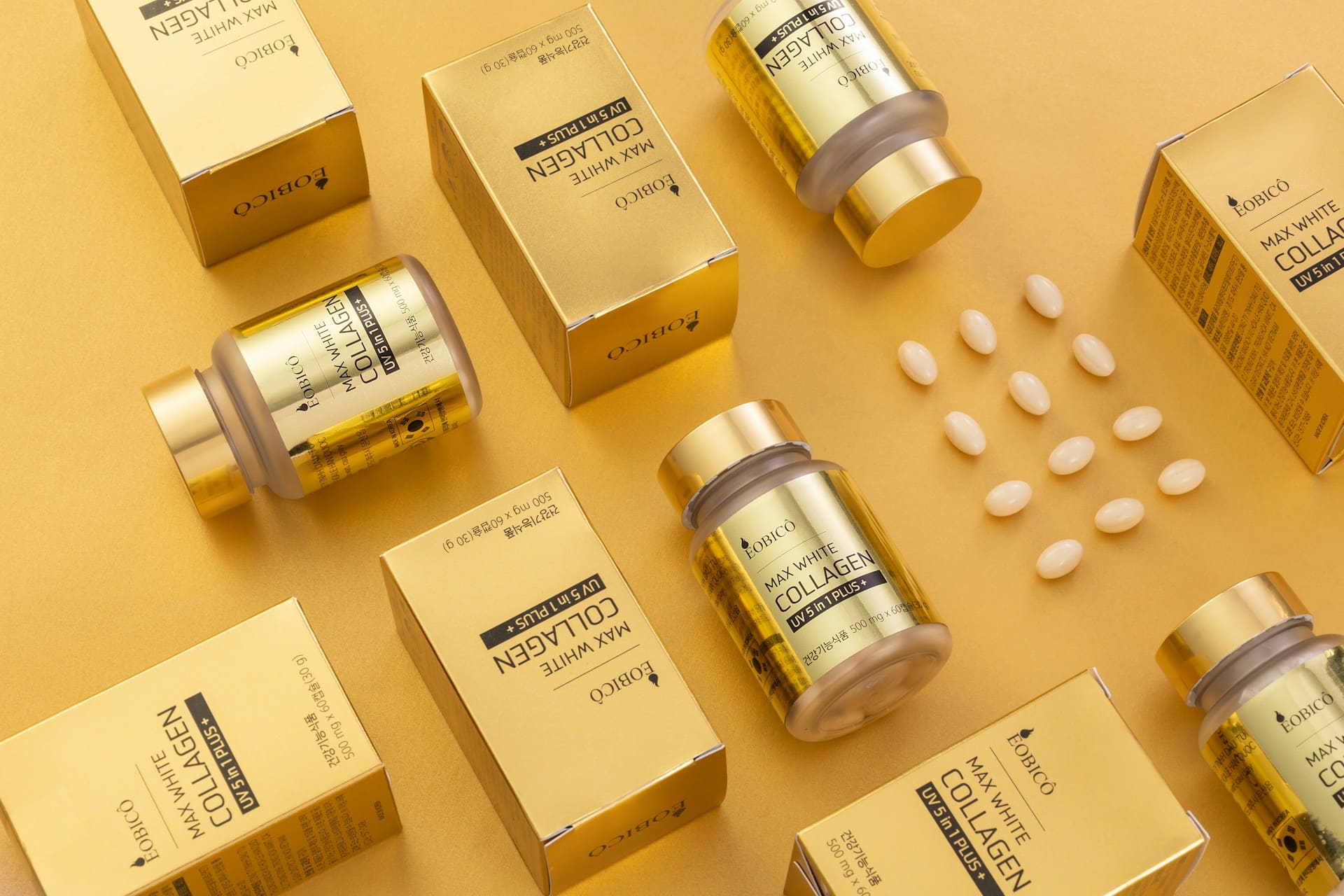Collagen has become a buzzword in wellness circles, often featured prominently on skincare labels and supplements. But what is it really, and how can it support your health?
Collagen is the most prevalent protein in the body, particularly noted for its Type 1 variety. It’s essential for a multitude of structures in your body, from muscles and bones to skin and tendons. Think of collagen as the foundational network that provides strength and elasticity to your skin, while also ensuring joint and tendon health. Its role is vital; it’s the substance that holds your body together.
As we age, our natural collagen production decreases, leading to common signs of aging such as wrinkles, sagging skin, and joint stiffness. Fortunately, there are numerous dietary sources and supplements available to help maintain your collagen levels.
What is Collagen?
Collagen is a complex protein, comprised of 19 different amino acids, including both essential and non-essential types. Some standout amino acids in collagen are arginine, glutamine, glycine, and proline.
Its unique structure, which consists of twisted triple helices made of over 1,400 amino acids, allows collagen fibers to take on specific shapes, giving strength and definition to various connective tissues.
What Causes Collagen Loss?
Aging is the primary factor behind decreased collagen production. The visible results—wrinkles and sagging skin—are just the surface indicators. Lifestyle choices also significantly impact collagen levels. Diets high in sugar, smoking, excessive alcohol intake, and sun exposure can all degrade collagen reserves. Additionally, certain genetic factors and nutritional deficiencies can further compromise your body’s ability to produce collagen effectively.
Nutrition Facts
Proline and glycine are the primary amino acids required for collagen synthesis. Unfortunately, these are often lacking in standard Western diets that rely heavily on meat sources.
If you’re feeling stressed or unwell, your body might struggle to produce adequate amounts of these amino acids, making it essential to consider dietary or supplemental support.
Here’s a quick look at these key amino acids:
– Proline: Comprising about 10-15% of collagen, it’s vital for blood vessel health and joint support.
– Glycine: Representing roughly a third of collagen, this small amino acid assists in DNA formation and is essential for muscle growth and energy during workouts.
– Glutamine: Recognized as an important nutrient, glutamine helps with anxiety, focus, and even boosts growth hormone production.
Consider how you can support collagen production in your life. Adjusting your diet or incorporating a quality collagen supplement can greatly enhance your well-being.
Collagen is a central protein vital for skin, joint, and connective tissue health. While we often link protein to muscles, collagen serves a unique role in our overall wellness journey.
– Arginine: This amino acid aids in nitric oxide production, which supports circulation and overall health. It’s beneficial for immune function and even male libido.
– Threonine: A crucial amino acid for forming collagen and elastin, threonine helps maintain skin elasticity and structural integrity.
Benefits of Collagen
You might wonder about the practical benefits of collagen. Here are some of its highlights:
1. Supports Skin Health: Boosting collagen levels has been shown to improve skin texture and elasticity, reducing the appearance of fine lines and promoting natural repair processes. Clinical studies confirm that daily collagen intake can enhance skin hydration and overall smoothness.
2. Alleviates Joint Pain: If you experience discomfort in your joints, it could signal declining collagen levels. This vital protein helps keep tendons and ligaments flexible and functioning smoothly. Increasing collagen intake can help restore movement and comfort, making it a popular choice for those with joint issues.
Incorporating collagen into your daily routine may just elevate your health and vitality, allowing you to enjoy life at its fullest.Collagen is emerging as a vital ally in maintaining joint health, especially for those experiencing the daily challenges of osteoarthritis. A study from 2019 found that collagen can significantly alleviate joint discomfort, enhancing overall well-being.
Collagen’s benefits extend beyond joints; it also plays a crucial role in gut health. For anyone grappling with digestive issues, collagen may provide relief by strengthening the gut lining. It helps shield this barrier from harmful toxins. This protective quality is essential for conditions like leaky gut syndrome and even more severe digestive disorders. Research shows that people with inflammatory bowel diseases often exhibit lower levels of collagen, linking its deficiency to digestive challenges. Incorporating collagen peptides may offer support in easing digestive discomfort and improving nutrient absorption.
Many people are on the lookout for ways to boost their metabolism, and collagen can contribute to this goal. By encouraging the development of lean muscle mass, collagen plays a pivotal role in maintaining good posture, strengthening bones, and enhancing calorie-burning efficiency. An amino acid found in collagen, glycine, not only aids in muscle formation but is also integral to converting glucose into energy.
Optimizing collagen intake with vitamin C can enhance its benefits, ensuring your body effectively uses it. This powerful combination can revitalize your energy levels and overall vitality.
Glycine and arginine, two pivotal amino acids present in collagen, significantly influence both our digestive and nervous systems. Glycine, for example, enhances your body’s ability to utilize antioxidants, combating daily stressors that cause cellular damage. Additionally, glycine aids in cell regeneration, allowing your body to bolster its defenses while maintaining optimal cell health.
Arginine plays a key role in protein synthesis, essential for repairing muscles and boosting metabolism. Ensuring adequate arginine can facilitate healing, particularly valuable for those recovering from injuries.
Collagen is equally vital for beauty and wellness. If you contend with brittle nails, thinning hair, or dental issues, collagen could be the answer. Quality collagen forms the foundation of our hair, nails, and teeth. By adding collagen-rich foods or supplements, you may strengthen your nails and address hair loss.
A compelling study indicated that increasing collagen intake could lead to notable improvements in hair volume and thickness over time, along with enhanced skin hydration.
Beyond aesthetic benefits, collagen supports liver health. Glycine in collagen helps mitigate liver damage from toxins and harmful substances. For those looking to detoxify, a bone broth fast may aid in gut repair and bolster immune function.
Cardiovascular health also benefits from collagen. The amino acid proline aids in reducing arterial fat deposits, impacting blood pressure and heart function positively. This natural approach could help minimize cardiovascular risks.
To integrate more collagen into your diet, consider diverse protein sources. Bovine collagen provides types 1 and 3, essential for muscle growth and recovery. Chicken collagen is rich in type 2 collagen, beneficial for joint health and loaded with chondroitin and glucosamine.
Fish collagen, easily absorbed by the body, mainly offers type 1 collagen, crucial for skin and organ health. Pair these with vitamin C to boost collagen stability and enhance your results. Don’t forget about eggs; the collagen present in eggshell membranes is another excellent source.
Focusing on collagen along with glycine and arginine can lead to notable health improvements and a higher quality of life. By making thoughtful dietary choices, you can promote your well-being and enhance your beauty routine.
Gelatin, the cooked form of collagen, is often used in culinary applications. While it provides amino acids like glycine and proline, its bioavailability isn’t as high as that of hydrolyzed collagen peptides. This distinction is crucial; for specific concerns like joint pain or skin elasticity, hydrolyzed collagen may be more effective.
However, gelatin can be a delicious way to boost your collagen intake through recipes like gummies, jellies, or creamy desserts.
Ultimately, both collagen and gelatin have unique advantages. Pay attention to your body’s responses, and if you notice improvements in your skin, joints, or overall well-being, you’re likely on the right path.
































